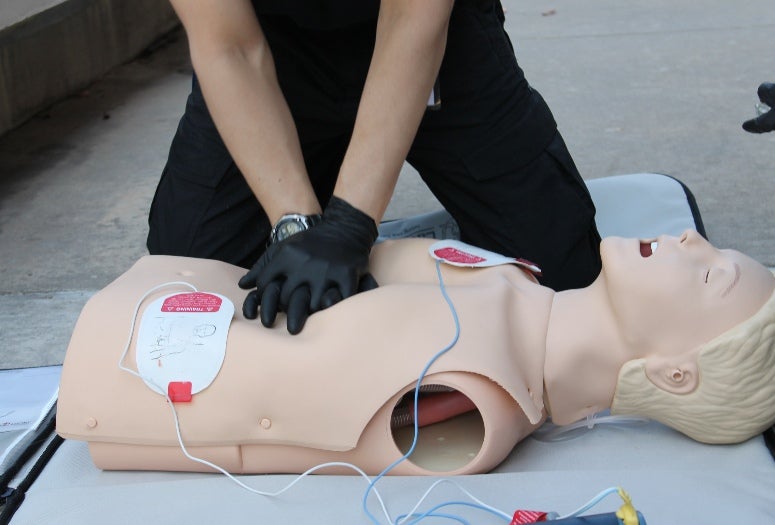Rice University is now better equipped to keep community members safe thanks to a grant from the Firehouse Subs Public Safety Foundation. The foundation granted more than $18,000 to Rice University Emergency Medical Services (REMS) to purchase eight automated external defibrillators (AEDs) and associated accessories, fulfilling a critical need within the department.
“These new AEDs will be used by REMS responders in the course of our duties,” said Lisa Basgall, REMS director. “Every time a REMS provider heads out for an emergency call, an athletic event, a party or any other standby event on campus, they carry an AED to be ready in case someone in attendance experiences cardiac arrest. These new devices mean REMS will continue to be as prepared as possible for any type of emergency.”
Having the necessary equipment on hand at the right time can make all the difference during an emergency event.
The new AEDs include continuous self-monitoring, which allow rescuers to be prepared to deliver swift treatment. The devices also allow chest compressions during rhythm analysis, reducing pauses between CPR and defibrillation. They also give users the option of English or Spanish voice prompts.
Basgall said that while cardiac events on campus are rare, AEDs have helped save community members’ lives.
Robert Botto, a biofuels chemist with KiOR Inc. who was 63 years old at the time, was warming up for a 3,000-meter race at Rice when he stopped, walked to the side of the track and collapsed. REMS responders revived his pulse with an AED before a Houston Fire Department (HFD) crew arrived to provide care.
Another incident involved Rice alum John Sneider ’94 during the university’s annual Business Plan Competition. He was serving as a judge when he experienced cardiac arrest. REMS was able to deliver treatment with an AED while waiting for HFD to transport him to the hospital.
“REMS can be on-site of any emergency on campus within a couple minutes, but having immediate access to an AED is a key link in the chain of survival for victims of cardiac arrest,” Basgall said.
REMS also manages Rice’s Public Access Defibrillator program, which has 64 AEDs located around the campus. Basgall said the publicly accessible defibrillators bolster REMS’s ability to effectively handle crises and are separate from the AEDs REMS was awarded by the foundation.
To learn more about REMS and the services it offers, including a variety of training opportunities in CPR and first aid, EMT courses and research courses, visit rems.rice.edu.

